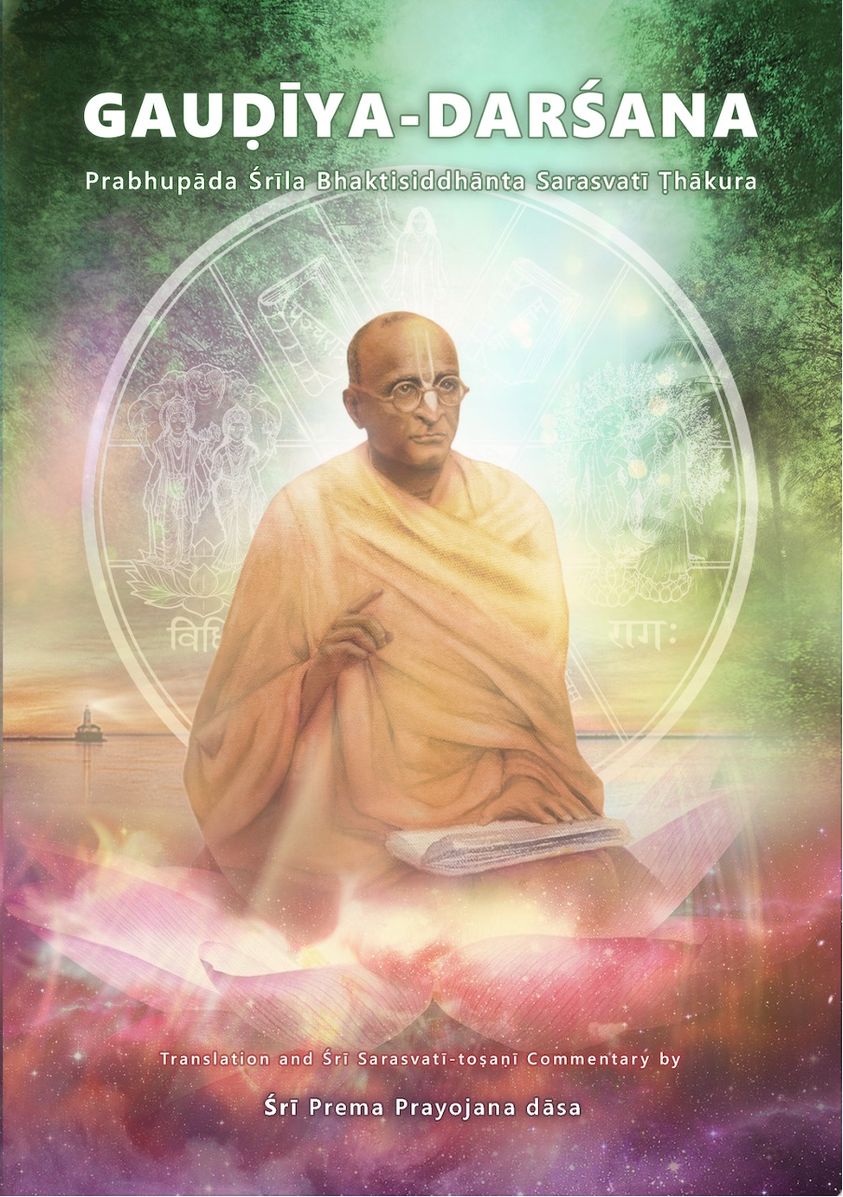From Srila Bhaktivedanta Swami Prabhupdas Bhagavad Gita Chapter 4 Texts 38 to 41
ty
Srila Bhaktivedanta Swami Prabhupda
The mature fruit of all mysticism.
BHAGAVAD GITA CHAPTER 4 TEXT 38
In this world, there is nothing so sublime and pure as transcendental knowledge. Such knowledge is the mature fruit of all mysticism. And one who has achieved this enjoys the self within himself in due course of time
PURPORT
When we speak of transcendental knowledge, we do so in terms of spiritual understanding. As such, there is nothing so sublime and pure as transcendental knowledge. Ignorance is the cause of our bondage, and knowledge is the cause of our liberation. This knowledge is the mature fruit of devotional service, and when one is situated in transcendental knowledge, he need not search for peace elsewhere, for he enjoys peace within himself. In other words, this knowledge and peace are culminated in Kṛṣṇa consciousness. That is the last word in the Bhagavad-gītā
BHAGAVAD GITA CHAPTER 4 TEXT 39
A faithful man who is absorbed in transcendental knowledge and who subdues his senses quickly attains the supreme spiritual peace.
PURPORT
Such knowledge in Kṛṣṇa consciousness can be achieved by a faithful person who believes firmly in Kṛṣṇa. One is called a faithful man who thinks that, simply by acting in Kṛṣṇa consciousness, he can attain the highest perfection. This faith is attained by the discharge of devotional service, and by chanting "Hare Kṛṣṇa, Hare Kṛṣṇa, Kṛṣṇa Kṛṣṇa, Hare Hare/ Hare Rāma, Hare Rāma, Rāma Rāma, Hare Hare," which cleanses one's heart of all material dirt. Over and above this, one should control the senses. A person who is faithful to Kṛṣṇa and who controls the senses can easily attain perfection in the knowledge of Kṛṣṇa consciousness without delay.
BHAGAVAD GITA CHAPTER 4 TEXT 40
But ignorant and faithless persons who doubt the revealed scriptures do not attain God consciousness. For the doubting soul there is happiness neither in this world nor in the next.
PURPORT
Out of many standard and authoritative revealed scriptures, the Bhagavad-gītā is the best. Persons who are almost like animals have no faith in, or knowledge of, the standard revealed scriptures; and some, even though they have knowledge of, or can cite passages from, the revealed scriptures, have actually no faith in these words. And even though others may have faith in scriptures like Bhagavad-gītā, they do not believe in or worship the Personality of Godhead, Śrī Kṛṣṇa. Such persons cannot have any standing in Kṛṣṇa consciousness. They fall down. Out of all the abovementioned persons, those who have no faith and are always doubtful make no progress at all. Men without faith in God and His revealed word find no good in this world, nor in the next. For them there is no happiness whatsoever. One should therefore follow the principles of revealed scriptures with faith and thereby be raised to the platform of knowledge. Only this knowledge will help one become promoted to the transcendental platform of spiritual understanding. In other words, doubtful persons have no status whatsoever in spiritual emancipation. One should therefore follow in the footsteps of great ācāryas who are in the disciplic succession and thereby attain success.
BHAGAVAD GITA CHAPTER 4
TEXT 40
Therefore, one who has renounced the fruits of his action, whose doubts are destroyed by transcendental knowledge, and who is situated firmly in the self, is not bound by works, O conqueror of riches.
PURPORT
One who follows the instruction of the Gītā, as it is imparted by the Lord, the Personality of Godhead Himself, becomes free from all doubts by the grace of transcendental knowledge. He, as a part and parcel of the Lord, in full Kṛṣṇa consciousness, is already established in self-knowledge. As such, he is undoubtedly above bondage to action














